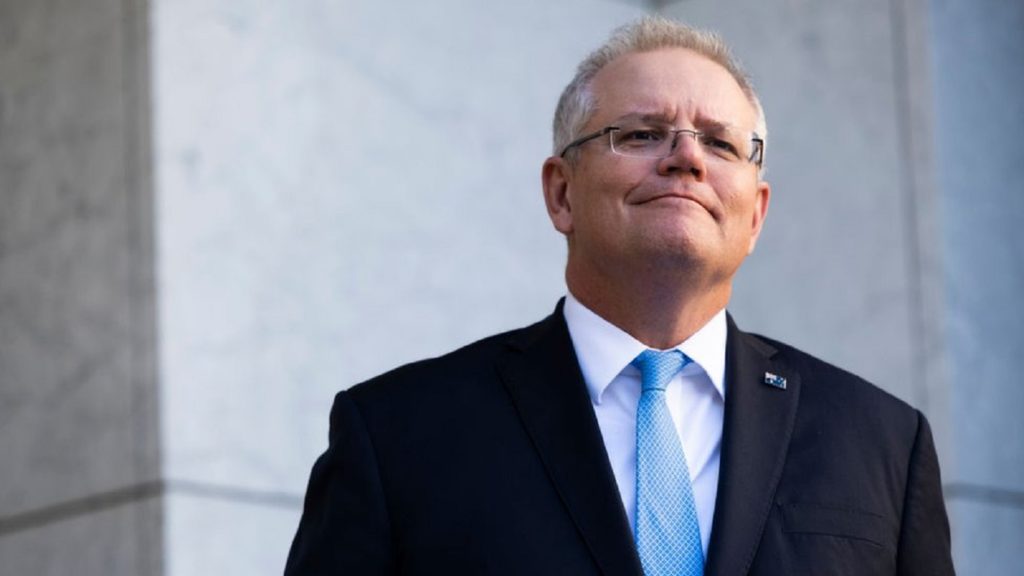As former prime minister Scott Morrison received Australia’s highest honour in the King’s Birthday 2025 Honours list on Monday, the proportion of women receiving such awards went backwards.
Of the 581 people receiving awards in the General Division of the Order of Australia, just 202 went to female recipients and 378 to male recipients (and one who has not provided the information).
That means around 35 per cent of the honours went to women this year, after women reached the 50 per cent mark of recipients in 2023 for the first time.
This gender balance trend hasn’t continued since 2023, despite the catch-up required to recognise the thousands of women whose work has been overlooked over the years.
Former prime mininster Scott Morrison is among the 14 Australians who have received Australia’s highest award in the King’s Birthday 2025 Honours List, including ten men and four women (with the incredibly deserving Wendy McCarthy AO on this list).
Morrison receiving this honour less than three years after Australians learnt that he had appointed himself to multiple “secret ministries” casts a stark reminder of those not being celebrated, especially women. It also highlights how those with current or former notable job titles are favoured for such honours over those who make significant but quiet contributions to their communities and chosen fields.
Indeed, the fact Morrison’s citation includes leading on Australia’s COVID-19 response must be frustrating to the many frontline workers who cared for the sick, young, disabled and elderly during this time for very little money and recognition.
Yet, according to the citations provided, just eight of the 581 people receiving general division honours have been recognised for their services to nursing, and just two were recognised for services to early childhood education.
Now compare that to the 23 people with some form of “business” noted in their citations, the 21 who have been recognised for services to “sport”, and the additional 12 who have services to “football” listed.
Are we honouring the right things if it’s easier to achieve such awards for services to AFL (with such citations mentioned eight times in today’s list) than for services to aged care, with two of the 581 recognised for their work in the field? Do we really need to celebrate people who have already had their efforts acknowledged literally in front of stadiums of people?
The word “teacher” was mentioned just three times across the citations listed next to hundreds of Australians receiving the general division awards, with two of those honoured for contributions to dance teaching and one to swimming. The vast majority of the 60+ mentions of “education” relate to tertiary education. Is dedicating a life and career to teaching the next generation of Australians not the kind of service we want to see recognised? Does a teacher need to leave the classroom for other activities to finally be commended for their contributions to the community?
The Office of the Governor General has provided a breakdown of the recipients’ “categories,” noting that each individual is assigned a single category (despite potentially crossing into multiple categories).
In the category of ‘community’ generally, you’d think women could have the upper hand, but men dominate this field again. Men claimed 168 of the total awards in this category, while 101 went to women. There were only two categories where women outnumbered men: disabled welfare (five women receiving honours compared with two men), and Information Technology (one woman receiving an award and no men). Two categories gave an equal number of awards, including Business and Commerce (16 to men and 16 to women) and Multicultural Affairs, with four awards each.
Meanwhile, 36 awards were received in the Military Division of the Order of Australia, and another 64 were presented with distinguished and conspicuous decorations (Military). No gender breakdown was provided for these areas. And 149 Austrailans were honoured with Meritous awards, including 42 receiving public service medals and others who received police, fire, ambulance, emergency and corrections medals.
Honour a Woman is a volunteer movement that has worked since 2017 to help achieve gender equality in the Order of Australia. In early 2025, Dr Elizabeth Hartnell-Young shared with Women’s Agenda that they are now turning their attention to more general diversity, which is a very good thing.
One way to achieve diversity would be to look at the types of services that get commended, services that are often frequently celebrated in other aspects of life. Services that don’t get podium moments, business awards, stadiums of people watching or the opportunity to deliver a valedictory speech. Rather, they quietly get what needs to be done in the community. This would be a fast way to get more women commended and more diversity overall. We can all help with these efforts by nominating those in our communities who we know are contributing great service in support of others. But then those judging these awards must also acknowledge this work and look beyond job titles and tradition.
Scott Morrison’s acceptance of an AC on Monday follows a tradition of prime ministers receiving this highest honour, including Malcolm Turnbull, Tony Abbott, Julia Gillard, and John Howard. Meanwhile, Paul Keating once famously refused to accept the award, believing that being prime mininster was sufficient recognition enough, and that the honours should go to those whose work in the community goes unrecognised.
It’s time for other Australians who’ve received key titles, endless public accolades and large amounts of remuneration to also make such public statements, including future prime ministers, Hollywood celebrities and high-profile athletes.


